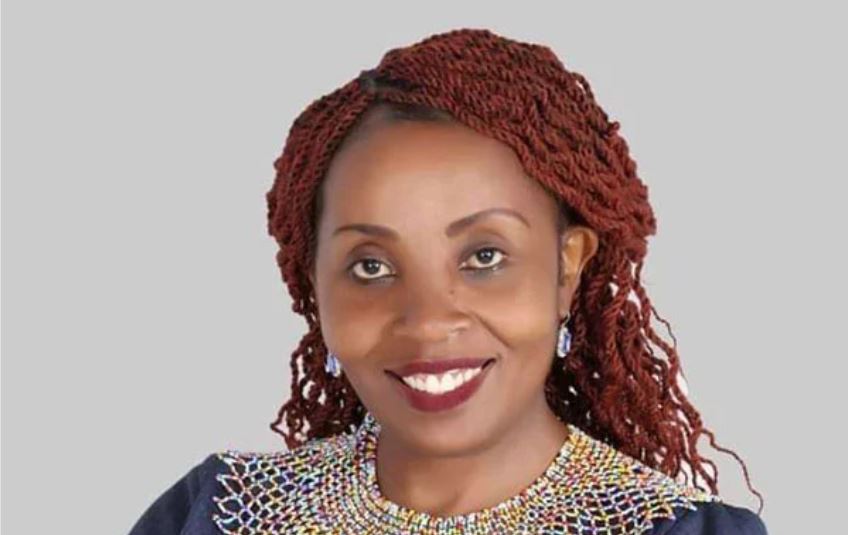 Esther Wangari Hahanyu, 46, was diagnosed with bipolar disorder 20 years ago. She shared her story on Saturday Magazine with hopes of raising awareness about mental illness.
Esther Wangari Hahanyu, 46, was diagnosed with bipolar disorder 20 years ago. She shared her story on Saturday Magazine with hopes of raising awareness about mental illness.
“One morning in 1998, just before tea break, I suddenly took off from the office building where I was working and began running down the street in Westlands, Nairobi.
My colleagues were dumbfounded. I didn’t know it at the time but I was hallucinating. Someone called my grandfather who found me in a restaurant down the street and took me to the hospital where I was diagnosed with bipolar disorder.
Bipolar is a mood disorder associated with episodes of mood swings ranging from depressive lows to manic highs.
I was just 25 at the time and was just settling in on this journey that is adulthood. My elder sister has battled schizophrenia, a chronic mental disorder, for a long time and I remember, when I was younger, wondering what it was like to see the world through her eyes.
Now, upon diagnosis, I was afraid that I had gotten exactly what I had been praying for.
HEREDITARY
The weeks following my diagnosis were confusing and terrifying. I wondered whether my life as I knew it was over.
Would I still be able to work? Would I be able to make something of myself? Would I be able to lead a life that I would be proud of?
The bipolar disorder symptoms did not appear abruptly. I remember when growing up, my mother repeatedly told me to be wary of alcohol and drugs.
She told me that I was susceptible to addiction because of my family genes.
I thought they were just words of a mother not wanting her daughter to drink at the time but I found out later, when I was about 21, that they weren’t.
I began experimenting with alcohol in 1994. I had just finished college and got a job at a bank in Isiolo, a town far from my home in Nyahururu. I was lonely.
ALCOHOLISM
I didn’t know many people in Isiolo so when I wasn’t working, I would drink.
I got arrested twice that year for being drunk and disorderly because every time I drank, I became very agitated.
The next year, I changed jobs and moved to Nairobi where I made new friends.
Now, with a little more money to spend, I stopped drinking spirits and began drinking brown bottled beer.
At the point where I had my first major bipolar episode, I had a drinking problem and would drink beer even for breakfast.
I came to learn later that I had probably been battling with the mood disorder for a while and I had been drinking as an escape, as a way of self-medication. It’s for this reason that I never dismiss anyone as just a drunk.
It was after my diagnosis that a doctor recommended I stop drinking, something that I struggled with but finally managed to do the same year.
RELAPSE SYMPTOMS
I think losing my job because I had become unpredictable had something to do with me making the decision to quit drinking and standing by it.
In retrospect, I wish my employer had tried to understand my situation more.
Bipolar isn’t like having an infection that you get medication and get cured from. It’s a life-long affliction that you learn to manage and live with.
I have been on at least two sets of medication to manage my moods since I was diagnosed.
I had my second major episode where I lost touch with reality in 2003 after I gave my life to Christ and prayed a lot. And thinking I was healed, I gave up on my medication only to relapse.
I can now tell when a relapse is looming and deal with it before it sprouts. My first symptoms usually is insomnia.
If I can’t sleep, I know that trouble is on the way. I also get very hyperactive; I have very high energy levels and get the most grandiose of ideas.
RAISING AWARENESS
Being on medication is a lifetime commitment. One of the side effects of mood stabilising medication is a large appetite.
To stay healthy, I am cautious about my diet and I exercise three times a week without fail.
In the process of taking care of myself, I have formed an online community in the form of three health and fitness groups on social media where I am an admin.
I work as an office administrator with a government ministry. I went back to school to study public relations and I use this knowledge to run various health and wellness campaigns on social media.
I like to think that I am now in a good place. I am not married and I do not have children yet, but I am finally dating someone who understands my condition.
In the past, I dated men who would be happy with me during the good times but would not want to commit during the unstable times.
I am excited to see where this relationship will take us.
BE A FRIEND
I am telling this story so that people may gain better understanding of mental illnesses.
I know, its human nature to be afraid of or even hate the things we do not understand. Instead of dismissing someone as a ‘mwenda wazimu’ (mad man) or telling a patient to snap out of it, how about trying to understand their condition better?
When your friend has a head- or toothache, you do not tell them to snap out of it, you take them to the hospital. I long for a world where mental illness will be seen for what it is, an illness.






